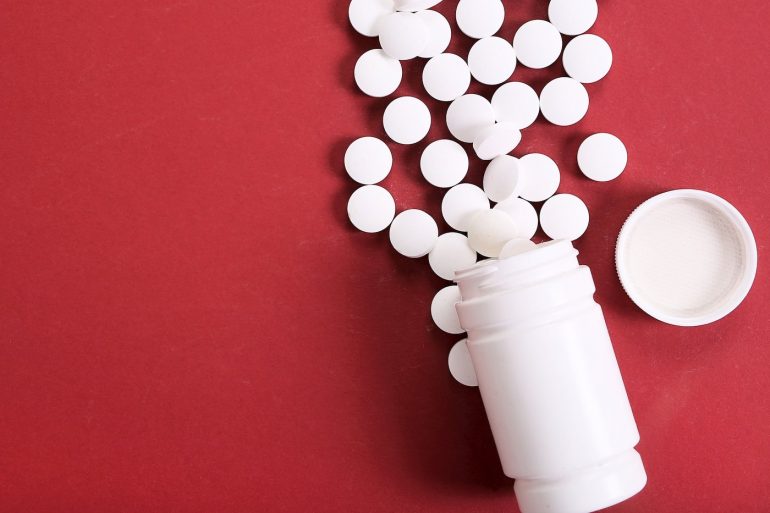Acetaminophen’s not the only popular medication that can be dangerous to children.
There is one more over-the-counter drug that teens and kids need to be especially careful about taking: aspirin.
Why shouldn’t kids take aspirin? Aspirin (or acetylsalicylic acid) is one of the most commonly-used analgesics and anti-fever medications worldwide, having been in clinical use for over 100 years.
Unfortunately, if kids or teens take aspirin while they have a cold, flu-like symptoms, chickenpox, or other viral illnesses, they could develop a form of liver injury called Reye’s Syndrome.
What is Reye’s syndrome?
Doctors are unsure as to the exact causes of Reye’s syndrome, but it is characterized internally by a buildup of fat in the liver (leaving it bright yellow and slightly enlarged), misshapen kidneys, higher than normal levels of enzymes, ammonia in the blood, and a swollen brain (encephalopathy).
Some of the evidence points to illness severity being dose-related, although it seems that in the presence of a viral infection, no dose of aspirin can be considered safe.
The disease usually occurs as children (the majority of Reye’s Syndrome victims are 15 years old or younger) are recovering from chickenpox, flu or other viral illnesses, and it has six stages of progression. The disease can reach its peak anywhere within hours to days of onset.
In the first three stages (pre-comatose), the victim becomes lethargic, delusional, and combative, but is still responsive. Other early symptoms include nausea, vomiting (often severe), fever, restlessness, and violence.
As the disease moves into the second three stages, heart and lung function slow, and the person becomes unresponsive as they fall into a coma.
Although fairly rare, Reye’s Syndrome can be fatal if not diagnosed early, and can have severe long-term effects — such as neurological disorders, intellectual disabilities, or problems with speech. Therefore, it is extremely important that kids and teens do not take aspirin while they are suffering from a cold, the flu, or chickenpox. (Reye’s syndrome can also occur in adults, but this is less common.)
OTC and easily available does not equal safe
Medicine labels may refer to aspirin as salicylate or salicylic acid. Be particularly sure to educate teenagers, who may take OTC (over-the-counter) medicines without mom or dad’s knowledge.
ALSO SEE: The safer way to give acetaminophen to children
However, everyone should be careful when taking any OTC drug. Reading the label only takes about five minutes, but those few minutes can save you from serious complications.
The fact that anyone can buy a drug over-the-counter without seeing a doctor does not mean that you do not need to take the same precautions you would for a prescription drug, but you need to consider all possible side effects and interactions your medicine could cause before you begin taking it to avoid serious health complications.
Talk to a medical professional — doctor, nurse or pharmacist — if you have any questions or concerns.
Didn’t aspirin used to be safe for kids?
If you grew up in the seventies or earlier, you probably remember being given those little pink baby aspirin pills. Why shouldn’t kids take aspirin if it was okay back then?
MORE: Remember the magic of baby aspirin, and how much kids loved those little orange pills?
Reye’s syndrome was first noted in Australia in 1963 — by Dr R Douglas Reye — then reports came in from around the world with increasing frequency, peaking in the 1970s and 1980s. Case reports followed by scientific surveys linked Reye syndrome to people who took aspirin during the early stages of a viral illness.
After the medical field recognized the association and issued wide-scale public warnings starting in 1986. The use of aspirin in children with fever decreased, and the frequency of Reye syndrome fell dramatically. In the United States, reported cases of Reye syndrome fell from more than 500 cases per year before 1986, to fewer than two cases per year thereafter.








